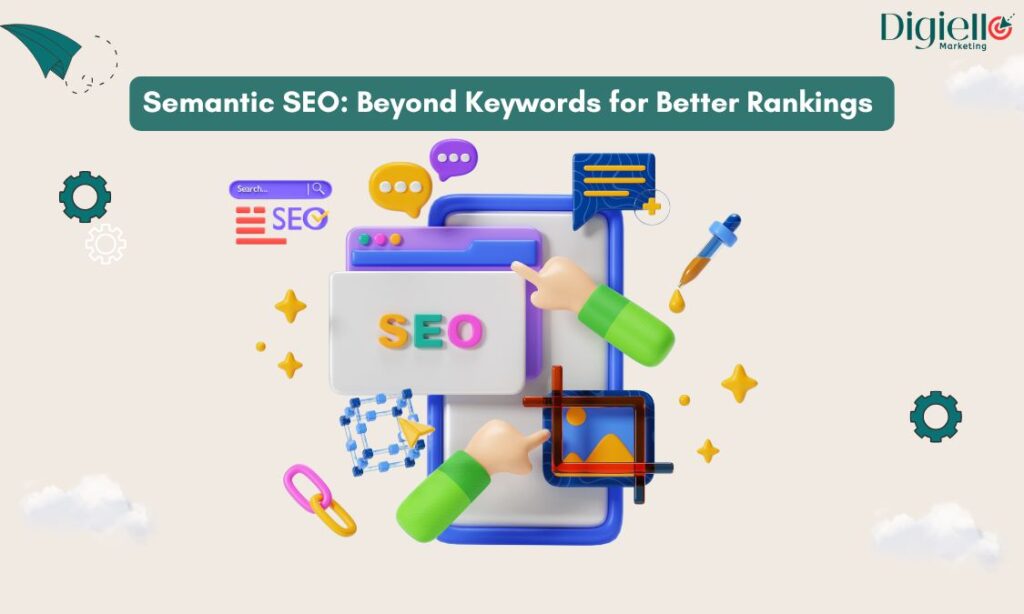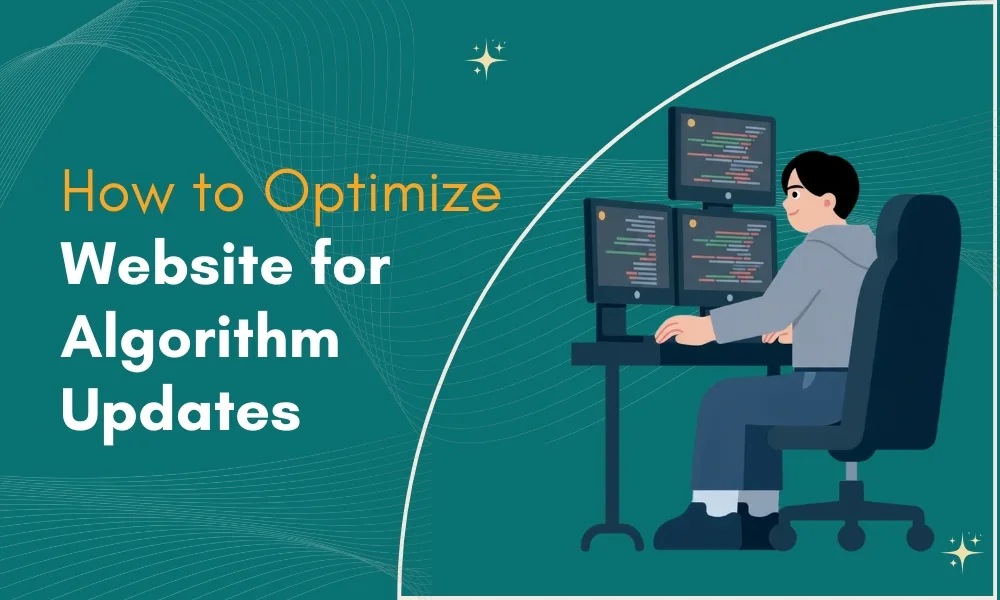As search engines evolve, traditional keyword-focused strategies alone are no longer enough to secure top rankings. Semantic SEO—a modern approach focusing on meaning and user intent—has become essential for businesses striving for better visibility. By leveraging Semantic SEO tactics, brands can improve search relevance, boost organic traffic, and enhance user experience.
At Digiello Marketing, recognized as the best digital marketing agency in Delhi, we understand how critical it is to stay ahead with advanced SEO strategies like Semantic SEO and comprehensive Keyword Research. Let’s explore how embracing Semantic SEO can transform your digital presence and future-proof your search rankings.
What Is Semantic SEO?
Semantic SEO refers to optimizing content based on the meaning behind search queries rather than focusing solely on exact-match keywords. It considers the relationships between words, context, and user intent to deliver more accurate search results.
Unlike traditional SEO, which prioritizes individual keywords, Semantic SEO emphasizes:
- User Intent: Understanding what users are genuinely searching for.
- Contextual Relevance: Connecting content to broader topics and themes.
- Entity Recognition: Identifying key concepts like people, places, and products.
- Natural Language Processing (NLP): Leveraging AI to interpret and rank content.
Why Semantic SEO Matters in 2025
Search engines like Google increasingly prioritize user intent through advanced algorithms like BERT (Bidirectional Encoder Representations from Transformers) and MUM (Multitask Unified Model). This shift means websites using Semantic SEO techniques will rank higher by providing comprehensive, contextually relevant content.
Key benefits of Semantic SEO include:
- Improved Search Visibility: Broader keyword coverage through contextual relevance.
- Enhanced User Experience: Delivering accurate answers faster.
- Higher Click-Through Rates (CTR): Attracting more qualified traffic.
- Better Voice Search Performance: Optimizing for conversational queries.
How Semantic SEO Differs from Traditional SEO
| Feature | Traditional SEO | Semantic SEO |
| Keyword Focus | Exact-match keywords | Topic clusters and entities |
| User Intent | Basic keyword matching | Deep understanding of context |
| Content Structure | Isolated pages targeting keywords | Interlinked content ecosystems |
| Search Algorithms | Relying on keyword density | Leveraging AI and NLP |
| Result Accuracy | Matches exact phrases | Answers complex user queries |
Implementing a Semantic SEO Strategy
To adopt Semantic SEO successfully, businesses must shift from keyword-stuffing to creating value-driven, comprehensive content.
- Conduct In-Depth Keyword Research
- Go beyond primary keywords and identify related terms, questions, and entities.
- Use tools like Google’s “People Also Ask” and keyword clustering software.
Digiello Marketing, the best digital marketing agency in Delhi, conducts advanced Keyword Research to map user intent and identify opportunities.
- Organize Content with Topic Clusters
- Build pillar pages addressing core topics and interlink related subtopics.
- Example: A pillar page on “Semantic SEO” could link to subtopics like “Keyword Research,” “Google’s BERT Algorithm,” and “User Intent.”
- Optimize for Entity-Based Search
- Incorporate entities—such as specific people, brands, and locations—relevant to your content.
- Use schema markup (structured data) to help search engines identify these entities.
- Enhance Content Depth and Relevance
- Write comprehensive, authoritative articles answering all user questions.
- Include FAQs, data-backed insights, and multimedia to increase engagement.
- Leverage Internal Linking
- Create strategic links between related pages to boost topical authority.
- Ensure smooth navigation across your website to enhance the user experience.
The Role of Keyword Research in Semantic SEO
Effective Keyword Research is the foundation of Semantic SEO. Rather than focusing on isolated keywords, modern research explores keyword intent, semantic relationships, and user behavior.
Best Practices for Keyword Research in Semantic SEO:
- Identify Core Topics: Understand customer pain points and core industry themes.
- Find Semantic Variants: Use related terms, synonyms, and long-tail keywords.
- Map User Journeys: Align content with every stage of the customer journey.
- Analyze Competitors: Discover gaps and opportunities by studying top-ranking pages.
At Digiello Marketing, our advanced Keyword Research methods empower businesses to optimize for Semantic SEO and improve search performance.
How Digiello Marketing Implements Semantic SEO
As the best digital marketing agency in Delhi, Digiello Marketing employs cutting-edge Semantic SEO services to deliver superior search engine rankings.
- Comprehensive SEO Audits: Evaluate website structure, content gaps, and user intent alignment.
- Advanced Keyword Research: Identify primary, secondary, and semantic keywords.
- Content Optimization: Craft in-depth, intent-driven content that meets algorithmic preferences.
- Schema Implementation: Apply structured data to improve SERP visibility.
- Performance Tracking: Monitor search analytics to refine and optimize strategy continuously.
Emerging Trends in Semantic SEO for 2025
- AI-Driven Content Creation: Using machine learning to generate user-centric content.
- Zero-Click Searches: Optimizing for featured snippets and instant answers.
- Multilingual SEO: Expanding content for global audiences with semantic relevance.
- Voice Search Optimization: Targeting conversational queries and long-tail phrases.
- E-A-T Optimization: Focusing on expertise, authoritativeness, and trustworthiness.
Related Pages:
Master Keyword Research for Higher SEO Rankings
Boost Your Brand with SEO and Reputation Management
Best Free Backlink Sites for Boosting SEO in 2025
Future-Proof Your SEO Strategy with Digiello Marketing
As search algorithms grow more sophisticated, Semantic SEO will play a pivotal role in securing and maintaining top search positions. Businesses that prioritize intent-driven content and advanced Keyword Research will enjoy increased visibility and user trust.
Partner with Digiello Marketing, the best digital marketing agency in Delhi, to implement Semantic SEO strategies that drive sustainable growth and superior search performance.
Conclusion
Semantic SEO goes beyond traditional keyword optimization by focusing on meaning, context, and user intent. As search engines become smarter, brands must adopt advanced techniques to stay competitive.
By leveraging Digiello Marketing’s expertise in Keyword Research and modern SEO practices, businesses can future-proof their strategies, improve search rankings, and deliver better user experiences. Invest in Semantic SEO today and elevate your digital presence to new heights.







